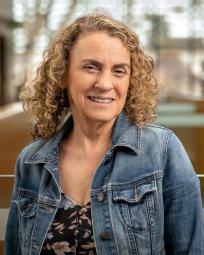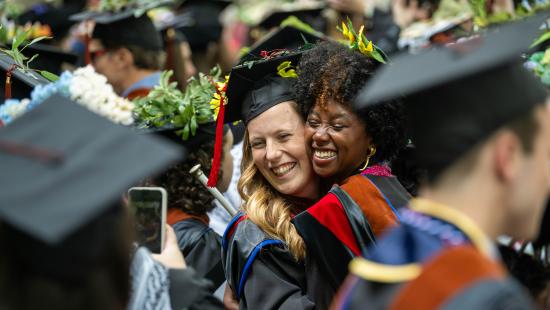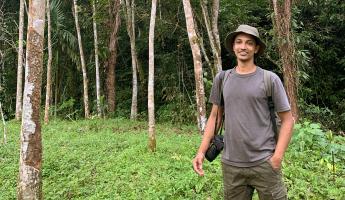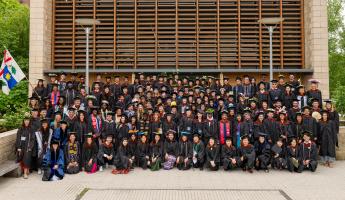

When Aishwarya Iyer ’24 PhD was in the eighth grade in Maharashtra, India, she performed a home energy audit for a science competition that involved assessing residents’ energy usage and making suggestions for maximizing energy efficiency. Even in that early examination of residential energy usage and preferences, Iyer was struck by how small adjustments could avert carbon emissions.
“The project led me deep into studying climate change,” Iyer recalled. “I wasn’t familiar with the concept. Afterwards, it was my chosen field.”
She earned her bachelor’s and master’s degrees in energy science and engineering at the Indian Institute of Technology (IIT) in Bombay, where she examined the intersection of energy and the environment. Her field work included assessing energy usage within IIT campus buildings as well as for the Canadian Cement Sector.
At the Yale School of the Environment, Iyer pursued her interest in energy and the built environment at the Center for Industrial Ecology, focusing her research on the life cycle assessment of energy use and the environmental impacts of residential buildings in India. As she gathered the information, she realized that informal and low-income housing units were not represented in the data.
“During this process, I found that all the available data came from formal, multi-story buildings, even though many urban residents live in informal homes,” she said. “That immediately struck me as a gap in our understanding of energy usage.”
To address this issue, she devised a study that would include low-income and informal housing units in an assessment of home cooling usage in relation to rising temperatures and humidity in urban areas. While some research predicts that demands for home cooling and energy will skyrocket as temperatures rise, Iyer examined whether mitigating factors — including behavior of residents in the underrepresented communities — could lower energy usage estimates. She noted that in her experience, residents often supplement air conditioning by using natural ventilation, sometimes the only affordable way to cool a dwelling. She collected data in India on building floor plans, construction materials, and other metrics, and used energy modeling and architectural software to test energy use scenarios and temperature and humidity variables.
I’ve met such a diverse group of people. I’ve learned to think about the importance of human behavior, well-being, and research representation. My experience has been a researcher’s dream.”
Her findings suggest that India will require far less energy than predicted to cool its growing urban populations and that building density and type greatly influence thermal comfort.
“Air conditioning may not be as necessary as some expect. We might be able to mitigate more than 50% of the estimated energy demand by incorporating practices like opening windows and understanding that people in India are comfortable at higher temperatures,” Iyer said.
Iyer’s work revealed the diversity of informal building types and the influence of spatial density and building materials on heat stress, said Narasimha Rao, associate professor of energy systems, who helped advise her research.
“This work is important to improve the representation of building stocks in the Global South and their energy-demand projections, which are a major driver of future global greenhouse gas emissions,” Rao said. “It shows that current projections of building energy demand growth are based on more simplistic representations and may overestimate demand significantly.”
While at YSE, Iyer served as vice president of the Yale Graduate Student Consulting Club and Chair of Gordon Research Conferences. She also spent two semesters as a visiting researcher at the Norwegian University of Science and Technology.
Iyer said that the interdisciplinary nature of YSE gave her the freedom to pursue diverse coursework and collaborations. Her doctoral committee includes Anna Dyson, Hines Professor of Sustainable Architectural Design, and she participated in the United Nations Environment Programme project with School of Architecture associates.
“One of the most powerful impacts for me, because my research spans energy and environment, was my program’s openness to interdisciplinarity,” Iyer said.
She also said the breadth of her graduate experience has prepared her for her next step — working as a consultant with Boston Consulting Group.
“As an engineer, I was trained to focus on numbers and the energy side of things,” she said. “But working in Professor Rao’s lab, I’ve met such a diverse group of people. I’ve learned to think about the importance of human behavior, well-being, and research representation. My experience has been a researcher’s dream.”
Media Contact







